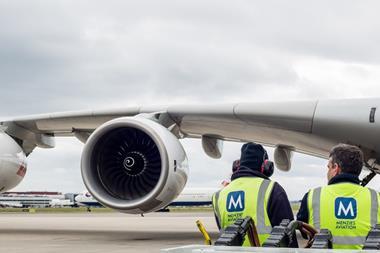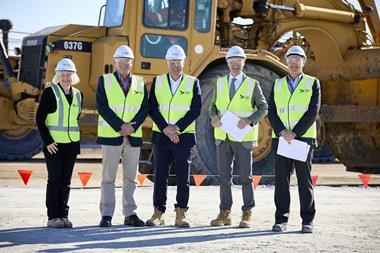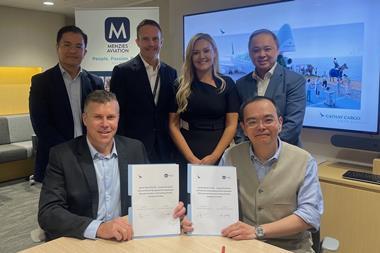
Source: Menzies Aviation
Menzies Aviation has been awarded IATA’s Center of Excellence for Independent Validators Lithium Batteries (CEIV Li-batt) certification for its cargo operations at Macau International Airport (MFM) in China.
Menzies Macau is the first location across the Menzies network to receive this certification, with other locations set to follow, said the ground handler.
CEIV Li-batt certification is given to businesses that consistently meet the stringent international standards of lithium battery handling and transportation. The certification process saw a rigorous assessment of Menzies’ cargo procedures, training programmes, and operational practices for the transport of these potentially hazardous materials, which according to IATA, represent one third of the dangerous goods transported by air.
As a globally recognised certification, CEIV Li-batt assures airline customers that a company adheres to best practices in the safe handling, packaging, and transportation of lithium batteries, which are widely used in consumer electronics, electric vehicles, and other critical industries.
The accreditation positions Menzies Aviation to support the growing demand for lithium battery shipments while minimising risk and ensuring compliance with international regulations.
Anabela Barros, managing director, Menzies Aviation Macau, said: “Obtaining the CEIV Li-batt certification demonstrates our unwavering commitment to overcoming the very serious safety risks posed by the transportation of lithium batteries. As the first station in the Menzies network to achieve this, we’re incredibly proud to meet the extremely rigorous standards demanded by CEIV Li-batt.”
Beau Paine, global head of cargo, Menzies Aviation, added: “We are thrilled to receive the CEIV Li-batt certification, which reflects our unwavering commitment to safety, compliance, and operational excellence. This not only strengthens our position as an industry leader in air cargo logistics but underscores our dedication to protecting people, property and the environment during the transportation of lithium batteries.”















